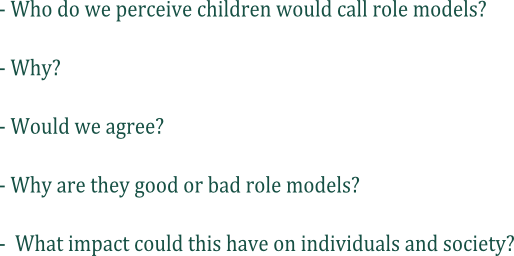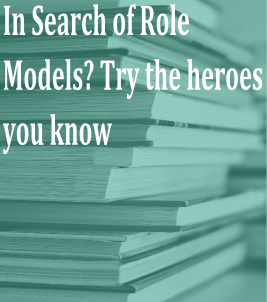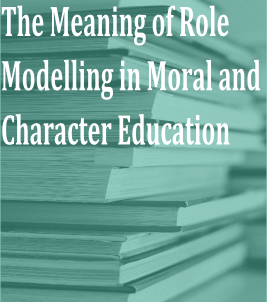
A person who provides a positive influence for others is defined as a role model. A role model is an individual:


In all professions, trainees are inspired by role models, generally their senior. Sometimes these are the mentors who support them as they enter practice, or they might be other significant individuals who have a formative effect on them during training.
Trainees in teaching often report that they learn how to behave ethically from these role models. In this section, you will learn about the positive effect that role models can have in your professional lives.

Inspiration can come from anywhere, but some people in our lives make a lasting contribution towards creating a better world for us and others. These people may have inspired others through their various achievements, but also their attitude and virtues.

Think about the people in your professional life who inspire you. For each person, highlight five positive character strengths they possess and discuss on the discussion boards. Beyond your immediate family, who else has demonstrated these character strengths? Are these character strengths often demonstrated in formal and informal settings?
Discuss with your fellow learners.

Sometimes, NEGATIVE role models shape who you are. They may help you realise who you do NOT want to be, or how you do NOT want to act.
In small groups, discuss some of the negative character strengths, or vices, that you may have witnessed in other people and how they may have influenced your professional practice.
Discuss on the discussion boards.

Do you consider yourself to be a role model to anyone else in the workplace? Think about who might regard you as a role model. What might they learn from you? If you have not previously thought of yourself as a role model to others, does thinking of yourself as one change your behaviour in any way? Discuss in small groups.

Think about the role models in children’s lives and how they influence them. Compare your answers to the following questions with the rest of the group.
and how they influence them. Compare your answers to the following questions with the rest of the group.
















